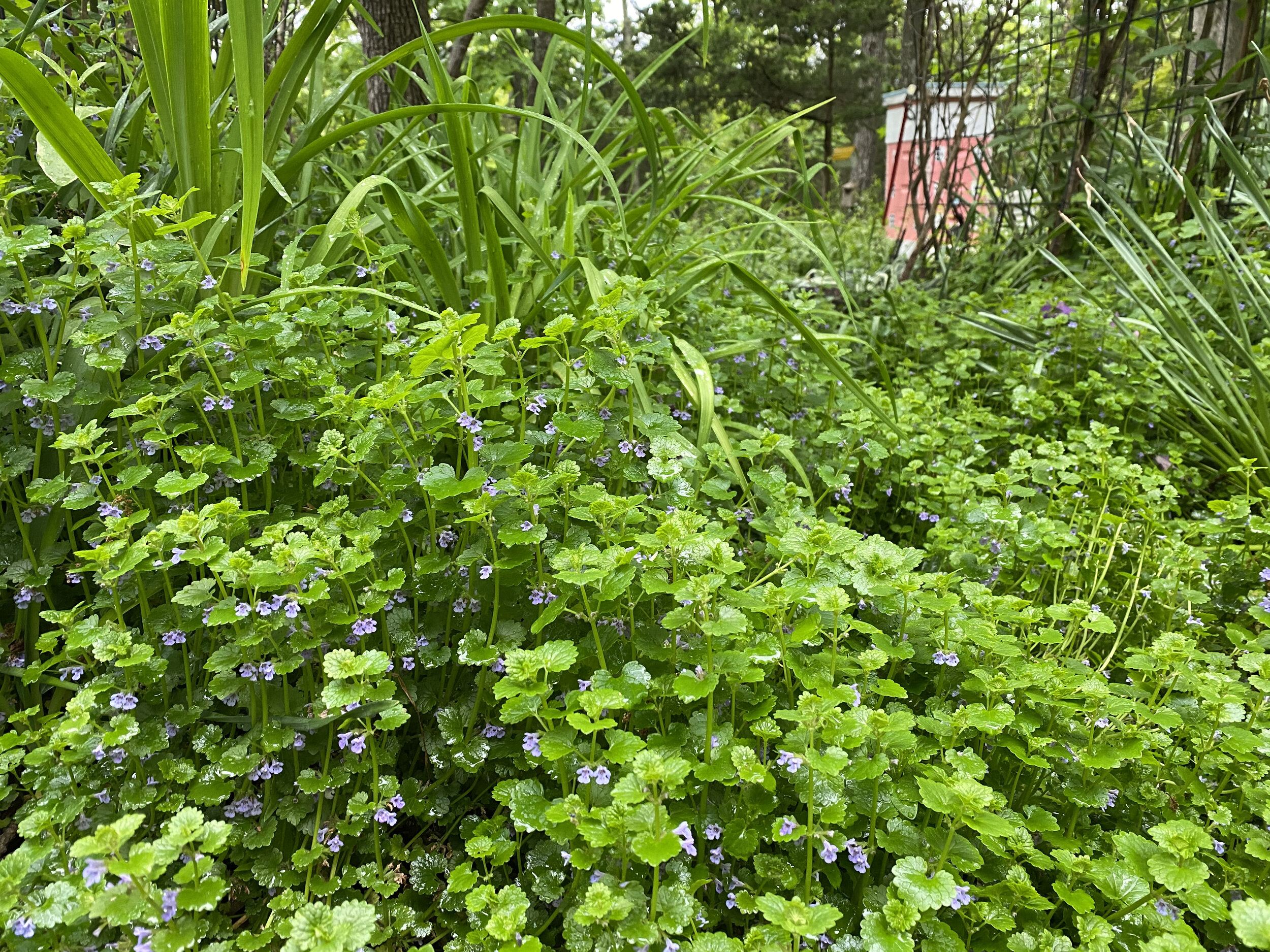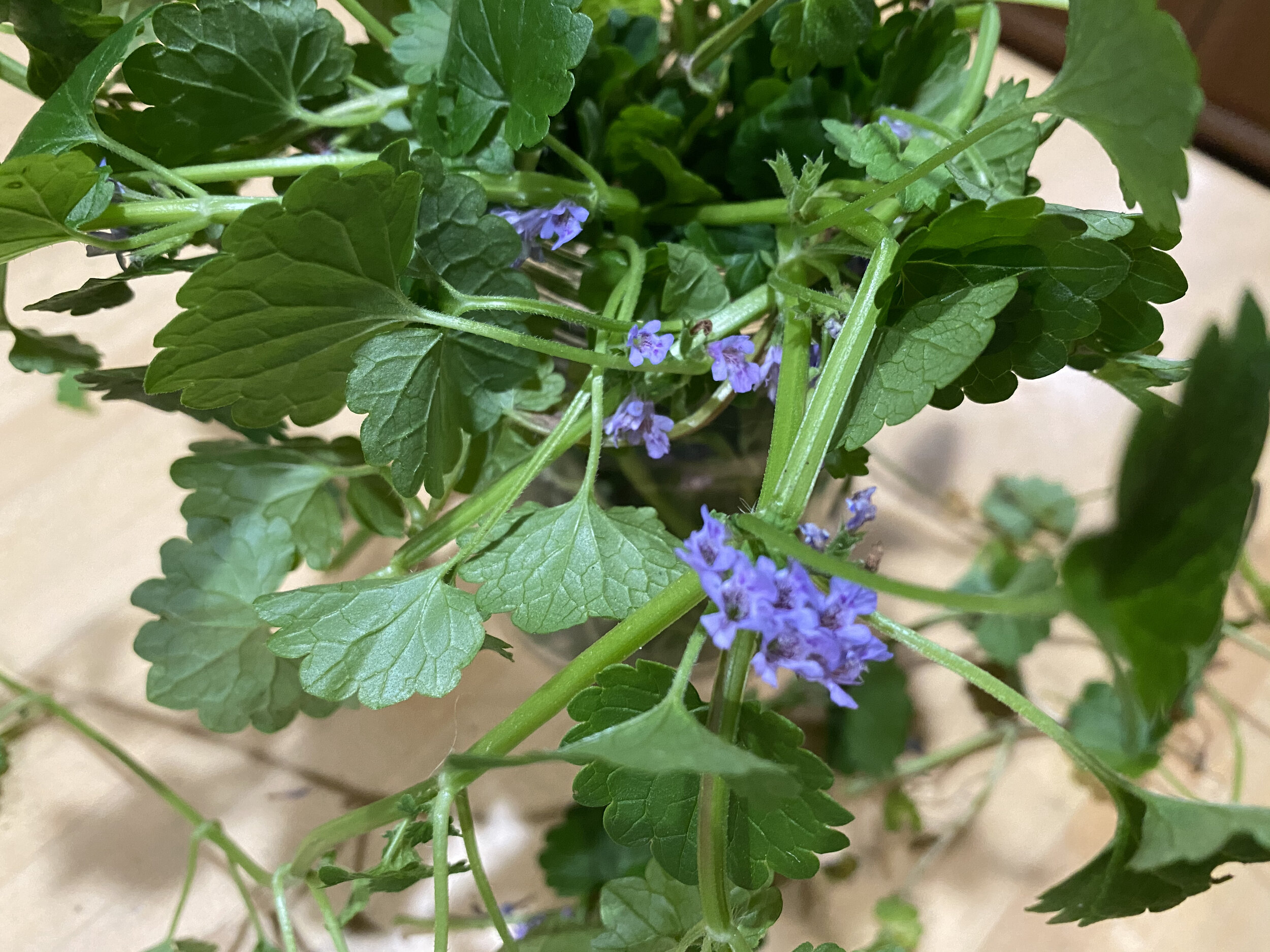Creeping Charlie Tea
/Creeping Charlie makes a tea high in Vitamin C with a light mint taste. (Photo by Charlotte Ekker Wiggins)
Creeping Charlie Tea
Creeping Charlie (Glechoma hederacea) is a mint that can provide spring nectar to pollinators including bees. It’s also often considered an invasive weed because it can easily take over an area, which to me is a bonus. Gardening on a Missouri limestone hillside means I need help, and if a plant can retain soil, provide food for bees and be beneficial for me, it’s a win all around.
Creeping Charlie, also called Ground Ivy, growing in my north apiary. (Photo by Charlotte Ekker Wiggins)
Besides a spring nectar source for bees, Creeping Charlie is high in Vitamin C. As a mint, it can be made into a tea. The leaves can also be consumed in a salad; it has a spinach-like flavor.
Creeping Charlie from my garden ready for salads and tea. (Photo by Charlotte Ekker Wiggins)
European settlers intentionally brought Creeping Charlie to North America. Along with some of its other “weedy” predecessors like dandelions. Creeping Charlie used to be valued for its culinary and medicinal uses, primarily as a tonic. High in Vitamin C, it was often made into a tea to prevent scurvy.
All parts of the plant can be used; it was often made into a tea, tincture and poultice.
How to Make Creeping Charlie Tea
Because this mint plant runs so rampant, one way to embrace and use Creeping Charlie is to make it into a tea. It has a pleasantly subtle mint-like flavor.
Before you start, make sure you are collecting plants from an area that hasn’t been treated by chemicals.
A quart jar repeatedly infused with hot water makes 3-4 servings of Creeping Charlie tea. (Photo by Charlotte Ekker Wiggins)
Pick enough plant material to loosely fill a quart jar.
Thoroughly wash the Creeping Charlie.
Place the plant material in a quart jar.
Fill to top with boiling water.
Cover jar and steep for one hour.
Remove plant material and drink either hot or cold or pour tea into a separate container and refill with hot water to steep again.
Add a teaspoon of honey. You can also add lemon or lime slices with a sprig of fresh mint.
Quart jar full of Creeping Charlie from my garden filled with hot water. (Photo by Charlotte Ekker Wiggins)
There is a lengthy list of medicinal claims for this tea according to the Lamb Shoppe Wellness Center, Since I”m not a medical professional I will leave those claims and assertions to someone else.
Charlotte















